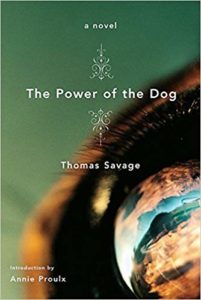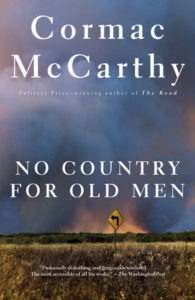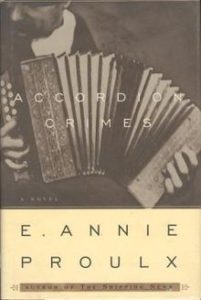If you love crime fiction and you still shop in bookstores—and I hope you do—you might be missing some good reads buried where you won’t find them shelved under Mystery, Thriller, or any other label used to organize crime-related books in a store. Now and then a literary writer, an author you’ll find shelved under Fiction, embarks upon a crime novel, intentionally or otherwise, and either nails it or at least does something worth reading within the genre. A fancy argument might be made that all successful fiction involves the processing of a crime—a transgression causing tension, a violation of some “law”—and the consequences. But that is not the proposition here. Although some loosening of strict genre expectations might be required, what follows is a list of bona fide crime novels that you won’t find on crime shelves. The common denominator is the excellence of the writing.

The joy of reading Jim Harrison’s novella Brown Dog is first and foremost the joy of reading Harrison in general. He is a great storyteller, poetic and profane, and very funny. But I suspect crime readers would also be interested in how cavalier the narrator is with the fact that a crime has occurred. At least I find it refreshing. The narrator, a salvage diver, finds a murdered Native American perfectly preserved at the bottom of Lake Superior (Harrison’s stomping grounds). Instead of reporting this to authorities, he arranges to sell the body to an artifact dealer in Chicago, stashes it in a stolen refrigerated truck, then proceeds to commit another series of crimes to protect a remote Native burial site, all while eating good food and having sex of dubious quality, both Harrison trademarks. Yes, the law closes in. But that’s hardly the point.
If you’re up for that, you will probably also enjoy Harrison’s The Great Leader and The Big Seven. The latter book Harrison in his lifetime referred to as a “faux mystery.” His gaspingly erratic semi-retired Detective Sunderson, a heavy drinker, passionate gourmand, and devoted fisherman (i.e., Harrison), grapples distractedly with the crimes perpetrated by an outlaw U.P. clan but is actually more interested in the mysteries of nature and human existence. Again, refreshing.

The Power of the Dog, by Thomas Savage, does not intend to be a crime novel. Ostensibly it is a western, and a brilliant one. As two Montana brothers—one good, the other bent—share a ranch and progress through their lives, their differences prove unsustainable. One of them plots to ruin the other but is stopped dead by one of the most unique and surprising (and patient) murder plots to be found anywhere in literature.

Neither does Cormac McCarthy set out explicitly to write crime, though readers of his work are well familiar with the deep currents of deviance, brutality, and violence. But two McCarthy novels work purposefully as crime novels in different ways. Many readers will have seen the film No Country for Old Men, but perhaps few have read McCarthy’s powerhouse novel, which is the most straightforward thriller in his body of work. A drug deal gone bad on the Texas-Mexico border triggers a terrifying serial killer and sets in motion harrowing events that turn out to be uncontainable by aging sheriff Ed Tom Bell.
Equally brutal and flush with criminality, but a very different kind of story, is McCarthy’s spare novel Child of God. After a damaged and dispossessed drifter, Lester Ballard, is falsely accused of rape, he terrorizes the hill country of East Tennessee with a crime spree that could only come from the mind of McCarthy and includes some absolutely stunning scenes, including one where a man sharpens an ax for Ballard while lovingly describing his craft, seducing the reader into the realms of knowledge and joy—but chillingly this is all lost on Ballard, who just wants his ax.

A restrained and elegant murder mystery that won’t be found on crime shelves is T. R. Pearson’s Blue Ridge, a story that follows new sheriff’s deputy Ray Tatum after the discovery of a hiker’s bones on the Appalachian Trail – and in parallel follows Tatum’s cousin, Paul, who must travel to New York City to identify the corpse of his son. When the two stories come together, Pearson with his literary style quietly touches remote depths of the soul.

While Walter Mosley is someone you will find on the crime shelves because of his Easy Rawlins series, Mosley’s powerful collection of linked short stories called Always Outnumbered, Always Outgunned is without a doubt literary fiction. You’re not likely to find the saga of ex-con Socrates Fortlow on the shelf next to the exploits of hard-boiled private eye Easy Rawlins. Released from the penitentiary with little but his criminal past and his determination not to repeat it, Socrates finds himself immersed in the squalor and desperation of Watts, the only neighborhood he can afford to live in. There is crack dealing and a murder, but there is no mystery. The dramatic unknown of the story is: Can Socrates stay on his righteous path? The book was made into a movie starring Laurence Fishburne.

Annie Proulx is one of the most gifted and unconventional writers working in fiction today. Most people know her as the author of the short story “Brokeback Mountain,” a fact that reportedly grates on her. Her stunning novel Accordion Crimes begins with a murder and a stolen accordion and traces the accordion across the American immigrant experience. As you would expect with Proulx, the book works like everything but a typical crime novel and instead uses crime as a thread in a vast and complex historical narrative of the type that probably no writer except Proulx should even think about attempting. (And she pulled it off a second time, but even more so, with the awesome 700-plus-page Barkskins. Try that too if you dare. For a smaller second bite of Proulx, read The Shipping News.)

Much of the work of Texas author Paulette Jiles centers thematically on Civil War crimes. One that really stands out is her National Book Award-nominated News of the World. This quiet-but-deep story, involving layers of crime, is about a German immigrant girl stolen from her family by the Kiowa, post-Civil War, then recaptured and returned all the way across war-ravaged Texas against her will, to a family that no longer wants her. Her escort is a kind and worldly old gentleman who takes a few dollars to do the job but realizes, as he and Johanna evade all kinds of dangers, that by returning her, he may be committing the greatest crime of all. What will he honor? The money he was paid and the promise he made? Or Johanna’s truth?

Finally, Ian McEwan’s outrageous and dazzling Nutshell is a must-read. Yes, this the same literary giant who won the Man Booker Prize for Amsterdam and whose novel Atonement was the basis of the Oscar-winning film of the same name. Make yourself ready: this is a thriller narrated by a fetus who along his journey toward birth becomes helplessly aware of a plot to kill his biological father. It is tense, tragic, and frequently hilarious. Coming from another writer, the narrative skill on display in Nutshell is nothing short of mind-blowing.
Enjoy.

















